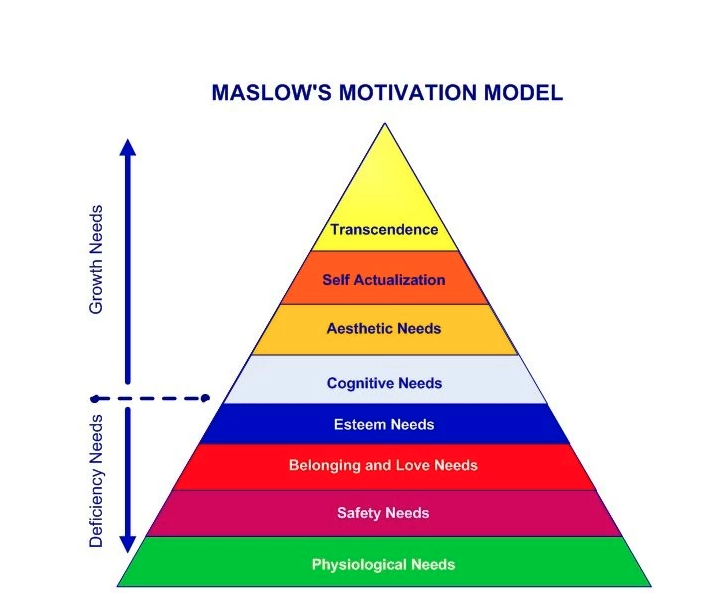The desire to love and be loved is a basic human need.
Let’s remember Maslow’s pyramid:

at the first levels – physiological needs and the need for a sense of security, then – love and belonging to a group. If problems arise here, then moving upward, towards high-level goals (respect, cognition, self-actualization) can be difficult.
Therefore, it is vital to feel loved. The only difference is that someone is looking for it in himself, and someone is looking for it in others, and not just looking, but begging.
It all starts with unconditional love for a child.
Unconditional love for a child is when we love him despite his behavior. There is a lot of respect in such love, it gives a sense of balance, which is expressed in the fundamental calmness of the person. If a child is loved only when the expectations of parents or teachers are fulfilled, then uncertainty and low self-esteem grow inside the child.
Later, such a conditioned “love” is activated by some events, people, actions.
In childhood a child tries to “earn” the love of parents and friends. In adult life such attitude: “You can love me only for something”- leads to the constant confirmation of your partner. And not always from a man, husband, but also from your boss, colleagues.
It turns out to be a vicious circle, a vessel that cannot be filled.
Where to expect the love from?
We can wait and receive “unconditional love” only from our parents and the creator, but not from the partner. An equal energy exchange is found only in mature relationships. When you love and feel confidence of being loved back. And that’s what we should strive for. This is possible when both spouses do not have a neurotic need for proof of love. If the opposite is true, then tragedy may occur.
Theta healing and unconditional love
In theta healing sessions, a person learns to feel the unconditional love of the creator for himself and in himself. When there is an inner filling with high vibrations, confidence and balance come, vain expectations from someone else from the outside go away. There is no need to look outside for proof of what is inside.
Is there unconditional love in a relationship?
If you enter into a relationship or marriage with a lack of love, then there is an urgent need for proof from the outside: material values, satisfaction of whims and momentary weaknesses. And there, if the need is neurotic, it’s not far from blackmailing. For example: “Prove that you love me!”
Often teenage girls enter into intimate relationships not out of a desire for sexual intimacy, but out of fear of losing a boyfriend. Such a girl asks a man with a tremor in her voice and with a plea in her eyes: “Do you love me?”
Who is this question really addressed to: her mother, father or maybe to herrself?
The trouble is that an adult woman does the same, being a little girl in her sou,l who screams for love and clings with all her might to the hem of their mother, and in fact – to the pants of a man.
“Do you love me?” – why do we demand proof of love
Fearing of being rejected, abandoned, having lack of trust and safety, a woman often requires attention (special), care (special). Often in a form that is unacceptable for a mature relationship. For example: “If you love me, then you should spend your free time with me”, or “If you love me, you will give me a car / vacation to the Canary Islands”.
“Love is patient, love is kind. It does not envy, it does not boast, it is not proud. It does not dishonor others, it is not self-seeking, it is not easily angered, it keeps no record of wrongs. Love does not delight in evil but rejoices with the truth. It always protects, always trusts, always hopes, always perseveres – the Bible.
How to recover from the need for proof of love?
If you ask your man, even jokingly: “Do you love me?”, Then it’s time to think about whose love you are actually looking for and whether you are looking there. Likewise, if you have a clear need for consistent praise and recognition at work.
What to do about it?
An honest and frank conversation with a partner, a psychologist and yourself is the means that will save you. It is important to be aware of your feelings and have the courage to say about them aloud. If it doesn’t work out, then a psychologist will help you. An experienced specialist will help to identify emotions and hidden needs, and then build a correct conversation with a partner.
Look for support in yourself. It does not work alone, contact psychologists.









